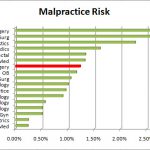The cost of care in a trauma center is high. When anything is expensive, it is natural to wonder about its cost-effectiveness. A group of biostatisticians recently looked at the treatment costs and cost-effectiveness of treating trauma patients in a trauma center vs an nontrauma hospital. They were very comprehensive in looking at costs, including costs for transportation, treatment at a transferring hospital, rehospitalization for acute care if needed, inpatient rehab, stays in longterm care or skilled nursing care facilities, outpatient care and informal care given by family members.
Treatment at a trauma center saved 3.4 lives per 100 patients treated. The overall added cost for treatment at a trauma center was about $36,000 per life year gained. However, in order to gauge cost-effectiveness we need to know what a year of life is worth. As you can imagine, this is tough to figure out. A number of researchers have looked at this, and it typically ranges from $50,000 to $200,000 per year. Thus, trauma center care is overall cost-effective.
The data was more closely analyzed, and it appears that the cost-effectiveness is greater for patients with more severe injuries. Unfortunately, cost-effectiveness is not as clear for patients who are 55 years or older.
The bottom line: Trauma is a leading cause of death in this country. The concept of treating more severely injured patients at trauma centers is both effective and cost-effective. Trauma systems need to be fine-tuned so that they get the right patient to the right hospital and so care for elderly patients continue to improve.
Reference: Nathens et al. The Value of Trauma Care. J Trauma 69(1):1-10, 2010.



